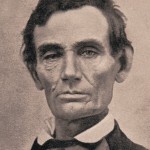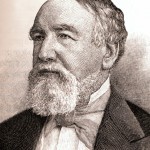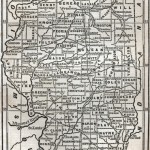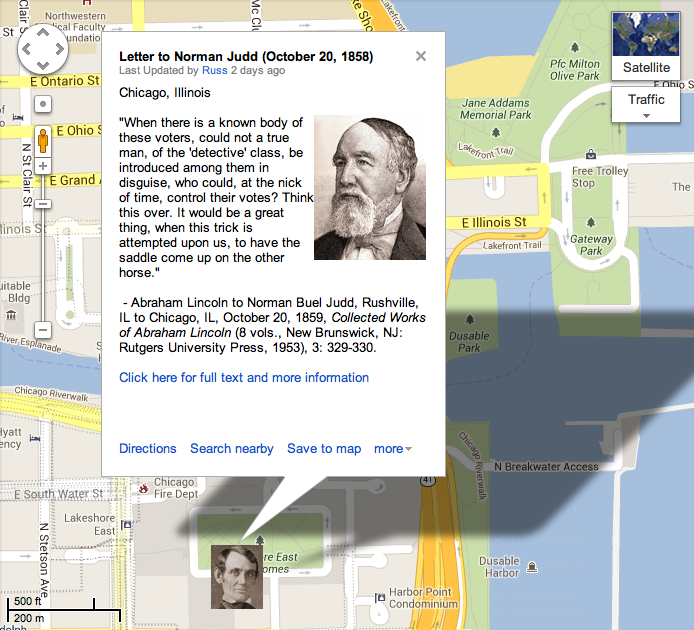Ranking
#9 on the list of 150 Most Teachable Lincoln Documents
Annotated Transcript
Context. Toward the end of the 1858 campaign, Abraham Lincoln worried about election fraud. In this letter, he addressed the issue by warning Republican state party chairman Norman B. Judd that Democrats were sending Irish immigrant voters across central Illinois to cast illegal ballots. Lincoln offered what he called “a bare suggestion,” namely that Republicans might themselves consider employing a “detective” who could control the Irish voters –though by what means he did not specify. (By Matthew Pinsker)
“I now have a high degree of confidence….”
On That Date
HD Daily Report, October 20, 1858
Audio Version
Image Gallery
- Lincoln in 1858
- Norman Judd
- John Courts Bagby
- Central Illinois
Matthew Pinsker: Understanding Lincoln: Letter to Judd (1858) from The Gilder Lehrman Institute on Vimeo.
Custom Map
Other Primary Sources
Chicago Press and Tribune, “The Celtic Invasion,” October 16, 1858
Chicago Daily Tribune, Article about Pinkerton & Co., September 5, 1856
How Historians Interpret
“Like many of his party colleagues, Lincoln anticipated electoral fraud. To Norman B. Judd he expressed ‘a high degree of confidence that we shall succeed, if we are not over-run with fraudulent votes to a greater extent than usual.’ In Naples he had noticed several Irishmen dressed as railroad workers carrying carpetbags; he reported that hundreds of others were rumored to be leaving districts where their votes were superfluous in order to settle briefly in hotly contested counties. To thwart this so-called ‘colonization’ of voters, Lincoln offered Judd ‘a bare suggestion,’ namely, that where ‘there is a known body of these voters, could not a true man, of the ‘detective’ class, be introduced among them in disguise, who could, at the nick of time, control their votes? Think this over. It would be a great thing, when this trick is attempted upon us, to have the saddle come up on the other horse.’ It is not entirely clear what Lincoln intended; the ‘true man of the detective class’ was perhaps a bag man to distribute bribes.’
—Michael Burlingame, A Life, vol. 1 (Baltimore: Johns Hopkins University Press, 2008), 1493
Further Reading
Searchable Text
Hon. N. B. Judd Rushville, Oct. 20, 1858
My dear Sir: I now have a high degree of confidence that we shall succeed, if we are not over-run with fraudulent votes to a greater extent than usual. On alighting from the cars and walking three squares at Naples on Monday, I met about fifteen Celtic gentlemen, with black carpet-sacks in their hands.
I learned that they had crossed over from the Rail-road in Brown county, but where they were going no one could tell. They dropped in about the doggeries, and were still hanging about when I left. At Brown County yesterday I was told that about four hundred of the same sort were to be brought into Schuyler, before the election, to work on some new Railroad; but on reaching here I find Bagby thinks that is not so.
What I most dread is that they will introduce into the doubtful districts numbers of men who are legal voters in all respects except residence and who will swear to residence and thus put it beyond our power to exclude them. They can & I fear will swear falsely on that point, because they know it is next to impossible to convict them of Perjury upon it.
Now the great remaining part of the campaign, is finding a way to head this thing off. Can it be done at all?
I have a bare suggestion. When there is a known body of these voters, could not a true man, of the “detective” class, be introduced among them in disguise, who could, at the nick of time, control their votes? Think this over. It would be a great thing, when this trick is attempted upon us, to have the saddle come up on the other horse.
I have talked, more fully than I can write, to Mr. Scripps, and he will talk to you.
If we can head off the fraudulent votes we shall carry the day. Yours as ever A. LINCOLN





